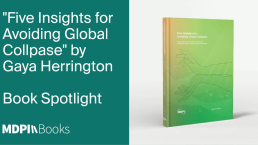
How MDPI Books Improves the SEO of Your Open Access Book
SEO, short for Search Engine Optimisation, is a crucial process in today’s open access book publishing landscape. In an often-saturated publishing market, SEO can give your open access book or chapter the extra visibility it needs to stand out. Whilst there are steps you can take to improve the SEO of your work, we wanted to give you an insight into what MDPI Books does in terms of SEO for our authors’ publications.
What is SEO?
Search Engine Optimisation (SEO) is a collection of strategies that improves a website’s presence and visibility on a search engine’s results page (SERP). While there are search engines such as Bing or DuckDuckGo, Google`s search engine has held a monopoly and market share of over 90% from 2015 to 2024.
The practice of SEO became popular in the last decade of the 20th century. This was a period when search engines such as Yahoo were trying to determine out of the growing number of websites which ones were the most relevant to internet users.
The user enters their search query (often using specific terms and phrases known as keywords). Then, the search engine presents them with a SERP. These are the most relevant, high-quality results, including organic pages and sponsored ads. With millions of open access publications, including articles, reviews, and books, uploaded each year, the scholarly author’s need to rank high on a SERP is growing.
SEO helps publications rank higher on SERPs. And it’s no surprise that the importance of SEO has only increased with the development of the Internet. With each website striving to promote its products in a busy market, it’s easy to see how some may become lost among the competition.
The same issue of visibility also troubles open access book publishing. So how do publishers improve the SEO of open access books?
How MDPI Books Improves the SEO of Your Open Access Book
Here at MDPI Books, we use very effective ways of improving the SEO of your open access book. Let’s take a look at some of our main SEO practices.
Meta title and domain reputation
A meta title is the text displayed on a search engine’s result page. This is extremely important for open access books, since the meta title helps readers locate a specific publication and indicates the topic of said publication.
Different search engines recommend different best practices on text length for meta titles. Google’s recommendation is to stick to 60-65 characters for SEO.

Importantly, the meta title of your open access book takes advantage of the domain reputation of MDPI. MDPI is a pioneer in scholarly open access publishing, with an established reputation and global reader base. This means that your open access book benefits from high visibility. Indeed, our books often rank first on Google, ahead of large retailers like Amazon.
Authorship
On the SERP for each open access book, you’ll find the author’s name below the publication’s title. This indicates authorship and acts as a sign of reputable content.
When you click on an author’s name on a book’s landing page, you’ll find links to their Sciprofile, Scilit, and Google Scholar profiles or databases. Google tracks this authorship to help fight unreliable or AI-generated content. That means Google prioritises this content and makes it easier to discover.
Book cover
Our open access books also rank highly on Google Images.
Again, as with our meta titles on the Google Search Engine, our book cover images rank ahead of online retailers like Amazon. This guarantees that readers interested in purchasing a physical copy of your book are directed to its landing page on the MDPI Books site by clicking on the image. From here they can download your book for free.
Pricing
MDPI Books is an open access book publisher. This means that all peer-reviewed research is freely accessible to the reader. Our open access books can be read online in a preview window or downloaded as a PDF at no cost.
However, MDPI Books also offers a print-on-demand service. This means readers can order a book for a fee, displayed on our website.
The price of our books is displayed on the Google Search Engine. What this communicates directly to others is that your book is purchasable. It’s a simple thing to implement, but you will find that lots of other publishers don’t display this information.
Please bear in mind that prices displayed on Google might vary from those on our website. This is because Google has to crawl this data and has limited crawling budgets.
On our website we offer dynamic pricing. This means that the prices you see next to each open access book or reprint are calculated on a daily basis. This is why we recommend consulting our website for the latest book prices.
Meta description and keywords
The meta description outlines the argument of your book. It is the main body of text found on your book’s landing page.
We recommend including descriptive and informative keywords in your meta description. These will help communicate the topic and scope of your open access book.
For information on writing a concise and relevant meta description, see our guide on how to market your open access book.
By choosing MDPI, you choose visibility
It’s important to note that when you choose MDPI to publish your book, you’re taking advantage of the domain reputation of MDPI. Your open access book benefits from the increased visibility and impact that MDPI offers with its high reputation and global audience.
At MDPI Books, we aim to optimise the discoverability of your Open Access book. You can rest assured knowing that behind the scenes we actively improve the SEO of your open access book to help increase its reach and impact.
Your book will be added to the Directory of Open Access Books (DOAB) and other industry-relevant indexing databases. Your open access book will also be registered with OAPEN and submitted to the Web of Science’s Book Citation Index (BKCI). (See our up-to-date indexing and distribution list).
Ready to publish your Open Access Book? Read our guide on publishing your academic book as Open Access. After you’ve read our guide, submit a book proposal with MDPI Books.
This article was made possible with the insight of Nicolas Coulon, Technical SEO Specialist for MDPI Books.









